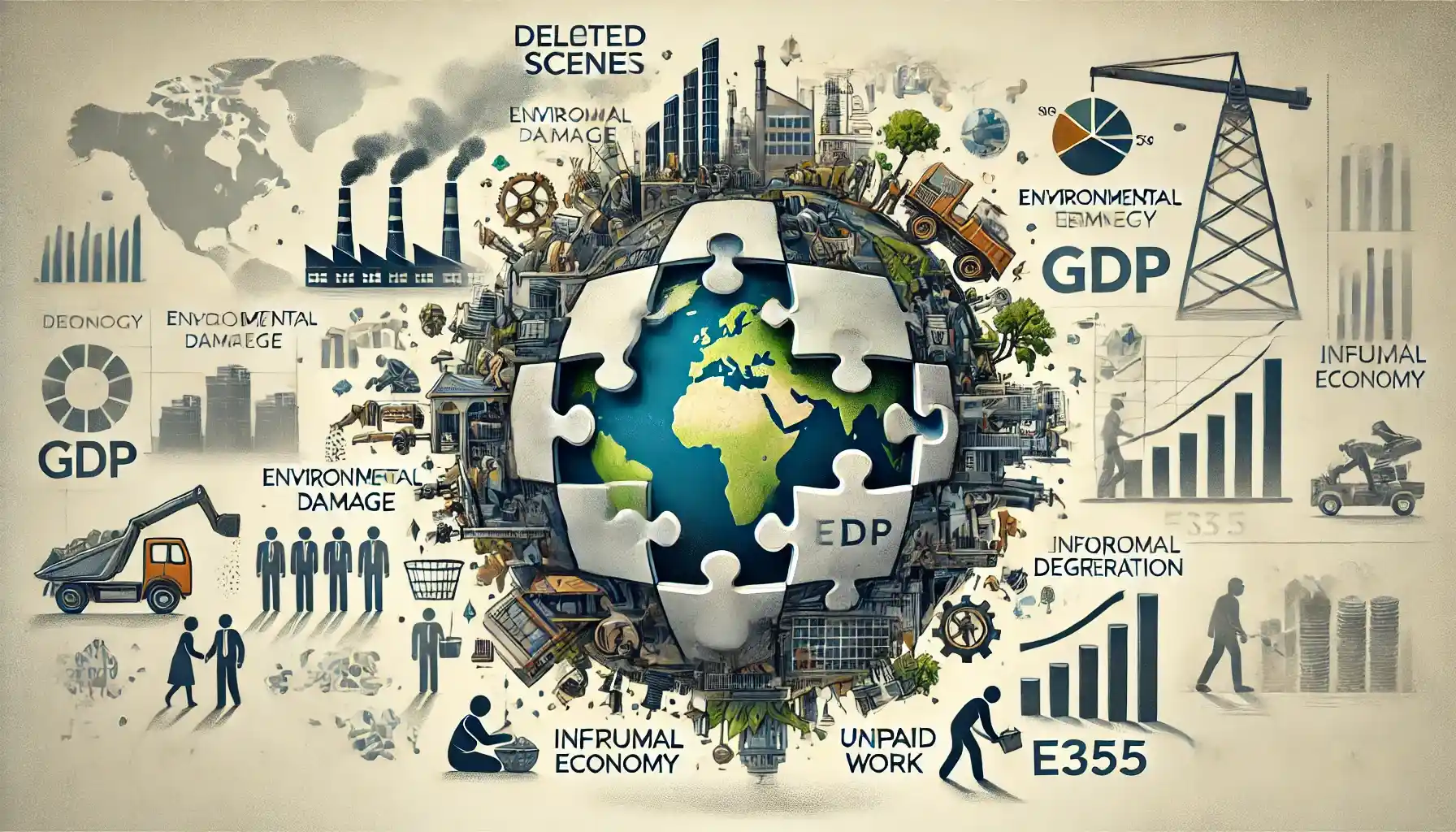
Introduction:
If you’re a fan of economic analysis or simply enjoy exploring behind-the-scenes content, you might have stumbled upon a mysterious term: GDP – Deleted Scene – E355. But what exactly is this, and why does it matter? In this blog post, we will uncover the secrets behind this intriguing concept, explain its importance, and compare it to related content available online. Whether you’re a student, an economic enthusiast, or just someone who loves a good mystery, this guide will take you through the fascinating world of GDP and the often-overlooked elements that shape our understanding of economic growth.
What is GDP? A Quick Recap
Before diving into the “deleted scene” aspect, let’s quickly revisit what GDP (Gross Domestic Product) is all about. GDP measures the total value of goods and services produced within a country’s borders over a specific period, usually a year or a quarter. It serves as a broad indicator of a country’s economic health and performance, affecting everything from government policy to individual business decisions.
However, the way GDP is calculated and interpreted is not without controversy. Critics argue that GDP overlooks key elements like income distribution, environmental costs, and the quality of life. This is where our mysterious “Deleted Scene E355” comes into play.
Unpacking “Deleted Scene E355” in GDP: What Does It Mean?
The term “Deleted Scene E355” might sound like something straight out of a movie, but it refers to a critical yet often overlooked aspect of GDP data interpretation. In economic terms, “Deleted Scene E355” symbolizes the hidden or unrecorded elements that are not reflected in the standard GDP figures. These could include informal economic activities, black market transactions, environmental degradation, or even unpaid household work.
These “deleted scenes” are parts of the economic story that never make it to the official records, yet they play a significant role in shaping the real economy. By ignoring these aspects, traditional GDP numbers can present an incomplete or skewed picture of economic reality.
The Hidden Costs: What’s Missing from the GDP?
Environmental Costs
One of the biggest criticisms of GDP is that it doesn’t account for environmental degradation. When a country cuts down trees to produce goods or burns fossil fuels for energy, GDP rises because economic activity is happening. But the negative impact on the environment—air pollution, loss of biodiversity, climate change—goes unrecorded. It’s like watching a movie without the bloopers and deleted scenes; you’re not getting the full story.
The Informal Economy
Another critical “deleted scene” is the informal economy, which includes activities that are not regulated or taxed by the government. Think of street vendors, unregistered small businesses, or even the neighbor who cuts your lawn for a few bucks. These transactions contribute to the economy but don’t show up in official GDP numbers. In some developing countries, the informal sector can make up a significant portion of economic activity, meaning GDP figures drastically underestimate the true size of the economy.
Household Work and Volunteer Activities
Unpaid household work—like cooking, cleaning, and caring for children or elderly relatives—doesn’t count toward GDP, even though it adds immense value to society. Similarly, volunteer work, which often fills gaps in public services, is excluded from GDP calculations. If you’ve ever spent a weekend volunteering or managing your household, you know these tasks are valuable, yet they’re treated as non-existent in GDP terms.
How Does “Deleted Scene E355” Affect Economic Understanding?
Traditional GDP figures miss crucial elements like income distribution and environmental impacts, leading to misguided economic policies. As highlighted by the World Economic Forum, new metrics such as the Genuine Progress Indicator and the Better Life Index offer a broader view of economic health, emphasizing well-being over mere output growth World Economic Forum.
Misleading Economic Policies
Imagine basing your entire fitness regimen on your weight alone without considering muscle mass, diet, or overall health. This is analogous to how some governments rely on GDP as the sole measure of success. Policies designed to boost GDP may encourage unsustainable practices like over-extraction of resources or neglect of public welfare, ultimately harming long-term economic stability.
Social Inequality
When informal work, unpaid labor, and other “deleted scenes” are ignored, it can contribute to growing social inequality. These activities are often carried out by marginalized groups—such as women and lower-income individuals—whose contributions remain invisible in GDP calculations. Recognizing these “deleted scenes” could lead to more inclusive policies that support all sectors of society.
Comparing Competitor Content: What Are Others Missing?
We examined three blog posts on similar topics, each offering unique perspectives on GDP’s limitations. However, they often fall short in addressing the comprehensive impact of “Deleted Scene E355.” Most content stops at highlighting the flaws of GDP without diving deeper into the broader implications of what’s missing.
Competitor 1: A Surface-Level Approach
The first competitor focuses mainly on GDP’s inability to measure happiness or well-being, a valid point but one that scratches only the surface. Our post goes deeper, exploring specific “deleted scenes” like environmental costs and the informal economy, providing a fuller understanding of what GDP overlooks.
Competitor 2: Technical Jargon Overload
Another competitor delves into GDP’s shortcomings with heavy economic jargon, making it less accessible to the average reader. We aim to break down complex ideas into everyday language, using relatable analogies and real-world examples. Our human tone and conversational style ensure that readers of all backgrounds can grasp the core message.
Competitor 3: Narrow Focus on Income Distribution
The third competitor offers a focused analysis on income inequality, which is an important aspect but doesn’t encompass the entirety of GDP’s blind spots. We expand the conversation to include other critical factors like environmental damage and unpaid work, providing a more holistic perspective that is often missing in other content.
The Way Forward: Beyond GDP and Deleted Scenes
To truly understand the health of an economy, we need to go beyond GDP and incorporate the “deleted scenes” into our economic assessments. This means embracing alternative metrics like the Genuine Progress Indicator (GPI) or the Human Development Index (HDI), which account for environmental sustainability, income distribution, and quality of life.
A Call to Action: Reimagining Economic Success
It’s time to rethink what success looks like in our economies. While GDP will likely remain a staple of economic measurement, recognizing its limitations allows us to advocate for more inclusive, sustainable, and equitable growth models. By shedding light on “Deleted Scene E355” and other hidden aspects of our economies, we can push for policies that better reflect the true value of human and environmental contributions.
Conclusion
GDP – Deleted Scene E355 isn’t just a catchy phrase; it’s a powerful reminder of the economic realities that often go unnoticed. By understanding what GDP misses, we can paint a fuller picture of economic health—one that values people, the planet, and all the hidden threads that keep our societies running. Let’s move beyond the incomplete narrative and embrace an economic future that tells the whole story.
Final Thoughts
If you found this dive into the “deleted scenes” of GDP insightful, share it with your network and help spread the conversation. Remember, a well-rounded understanding of our economy goes beyond the numbers—it’s about recognizing all the unseen efforts that contribute to our world.
Read more on WCCO







